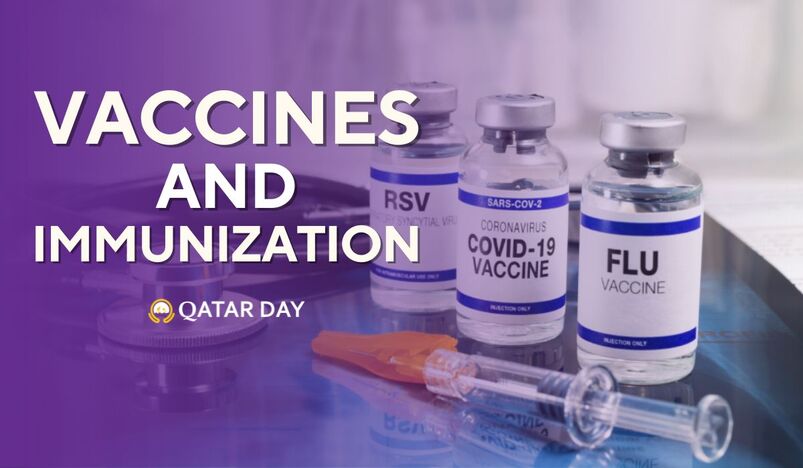
The Importance of Vaccines & Immunization
Vaccines and immunization are not just medical tools; they are our first line of defense against a multitude of infectious diseases. In recent years, the world has witnessed remarkable advances in medical science, but the importance of vaccines remains undiminished. They play a pivotal role in safeguarding public health by preventing and controlling the spread of contagious diseases.
In Qatar we have the National Center for Immunization and Respiratory Diseases (NCIRD), with an aim to work towards the prevention of disease, disability, and death through immunization and by control of respiratory and related diseases.
The NCIRD’s challenge is to effectively balance our efforts in the domestic and global arenas as well as accommodate the specific needs of all populations at risk of vaccine preventable diseases from children to older adults.
This article delves into the significance of vaccines and immunization in protecting individuals and communities.
Prevention of Deadly Diseases
Vaccines are instrumental in the prevention of deadly diseases that have historically claimed countless lives. Diseases like polio, smallpox, and measles, which used to be rampant, have been brought under control or even eradicated due to widespread vaccination programs. Vaccines stimulate the body's immune system to recognize and fight specific pathogens, thereby conferring immunity to the individual.
Herd Immunity
Vaccination not only protects those who receive it but also indirectly shields vulnerable individuals who cannot be vaccinated, such as infants and those with certain medical conditions. This concept is known as "herd immunity." When a significant portion of the population is immune to a disease, it becomes challenging for the disease to spread, effectively protecting those who are at higher risk.
Reducing the Spread of Diseases
Vaccines play a crucial role in controlling outbreaks and limiting the spread of diseases. By reducing the number of susceptible individuals in a population, vaccines disrupt the transmission chain of pathogens. This not only helps prevent epidemics but also lessens the burden on healthcare systems.
Safe and Cost-Effective
Vaccines are rigorously tested for safety and efficacy before they are approved for use. Their benefits far outweigh the potential risks. Vaccination is often more cost-effective than treating the diseases they prevent. The economic burden of treating infectious diseases can be significant, making prevention through vaccination a prudent choice.
Long-lasting Protection
Many vaccines provide long-lasting protection, reducing the need for frequent re-vaccination. For example, a single measles vaccine can offer immunity for a lifetime. This means that individuals can enjoy a healthier life without the risk of contracting and transmitting these diseases.
Global Health Security
In an increasingly interconnected world, the importance of vaccines is amplified. Diseases can easily cross borders, putting global health at risk. Vaccination programs not only protect individuals but also contribute to global health security, as seen in the coordinated efforts to combat the COVID-19 pandemic.
Vaccines and immunization have transformed the landscape of public health by preventing a wide range of infectious diseases. Their significance cannot be overstated, and their impact is evident in the reduced prevalence of once-deadly illnesses. As responsible members of society, it is crucial to support and participate in vaccination programs. By doing so, we not only protect ourselves but also contribute to the well-being of our communities and the world at large. Vaccines are our most effective tools in preserving health, ensuring the safety of future generations, and ultimately preventing the resurgence of devastating diseases.
.jpg)
Qatar Secures Place Among the World's Top 10 Wealthiest Nations
.jpg)
Hamad International Airport Witnesses Record Increase in Passenger Traffic

Saudi Arabia: Any visa holder can now perform Umrah

What are Qatar's Labour Laws on Annual Leave?
Leave a comment